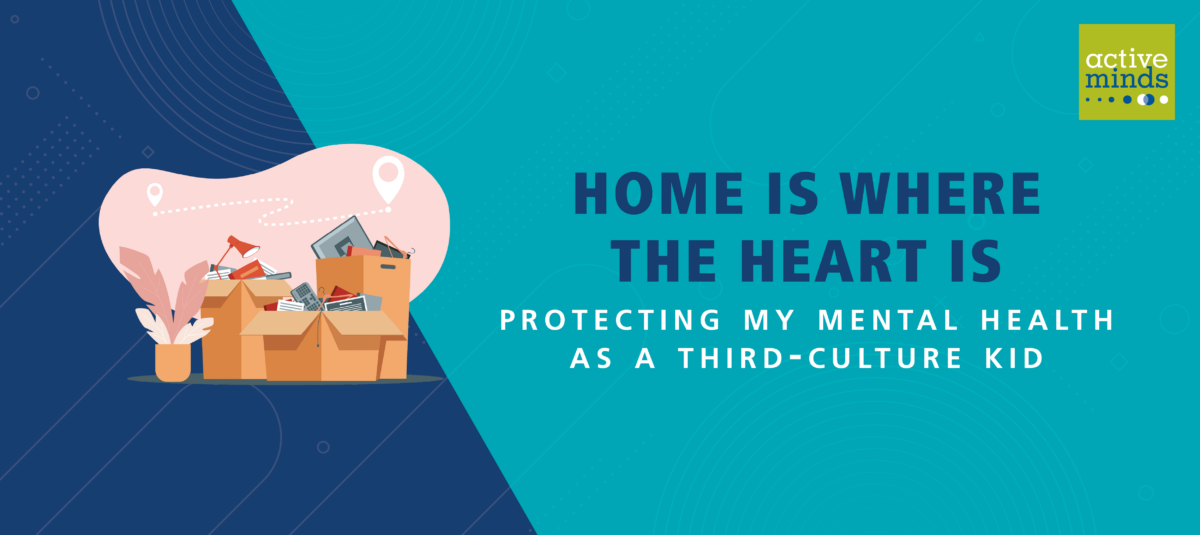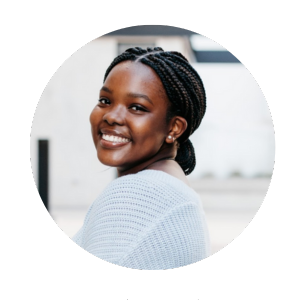Before the age of 11, I traveled frequently between Kenya, my home country, and the United States. I also switched schools four times. At the time, I considered all of this constant change and movement to be normal. I rarely took the time to form strong friendships with those around me because I knew I’d be changing schools soon. Not only that, but my mother’s inability to be fully present in my life compared to the parents of my peers as a result of her demanding work for the United Nations High Commissioner for Refugees (UNHCR) left me a very reserved child. I knew from an early age that my mom’s mental health, even though I may not have known the term “mental health” at the time, was being affected by her work in conflict areas, so I didn’t want to express to her the social, emotional, and academic struggles I was going through. This is what life as a third-culture kid (TCK) meant for me and my mental health for so many years.
If you’re like me (only six months ago), you might not understand what a third-culture kid is, or how living as one can impact mental health. A textbook definition would be someone who spent some, if not the majority, of their developmental years somewhere other than their home country. It could also apply to someone who frequently traveled between their home country and other countries due to their parents’ work, as in my case. And, even while living in Kenya, I switched schools often and spent little time with my only parent, which are other common struggles that TCKs experience.
In 2016, I moved back to the United States (specifically, Minnesota) to live with my grandmother, but I felt like something was missing. Sure, I’d grown accustomed to this way of life, but I realized I had no idea what or who “home” meant to me, especially since long-term friendships were of no value to me, leading me to feel like I had no one. Having grown up in both Kenya and the United States, I was aware that my roots were stronger in the former, but I wasn’t sure what to make of it. By the end of high school, I started to lose the parts of myself that were “Kenyan,” such as gradually forgetting the language, Kiswahili, which was so important to me.
While being a TCK prevented me from creating long-term relationships or sharing my mental health struggles with others, I was still able to find ways to cope with my feelings and ultimately become more empathetic, understanding, and able to adapt to stressful situations.
I began to find the value in long-term, healthy relationships towards the end of my senior year, especially with those of diverse cultural backgrounds considering the amount of traveling I did between two culturally dissimilar countries. I became more comfortable talking about my mental health with my mom, who I get to see a little more these days. But all of this would not have happened as early as it did if it weren’t for my mom and I getting to understand each other better first and, second, the birth of my little sister in 2020.
Knowing that my sister may have to go through the same lifestyle I did, I wanted to make sure that I would be able to be someone she could rely on. I wanted to guide her the way I’d hoped to be, especially as a child who lacked the feeling or presence of permanence from those that were important to her. After years of reflecting on my past, trying to figure out why my social skills were not the best and not being able to speak about it with anyone, it was finally through conversation with my mom that I found a way to acknowledge the positives of life as a third-culture kid and start to work on my mental health.
For those going through, or reconciling with, the same experiences as I did, one thing I would recommend is to reflect on the amount of change you have gone through and how it benefited you. Most importantly, if you can, have a heart-to-heart conversation with your parents, caregiver, or guardian about why you had to travel, especially if you are struggling to find yourself in such a fast-paced and demanding world. Using tools like V-A-R® (Validate, Appreciate, Refer®) to actively listen and respond to each other during these sometimes difficult conversations can be helpful. Looking back at your family’s history and the reasons for their life choices may also provide valuable insight into how to heal, and help you find someone or somewhere to call “home.”
Now, as a 17-year-old freshman (almost sophomore!) majoring in international studies at American University in Washington D.C., over 7,000 miles away from Kenya and 1,000 miles away from Minnesota, I am finally beginning to find ways to slowly heal and grow from that part of my life, and look forward to what the future holds.




